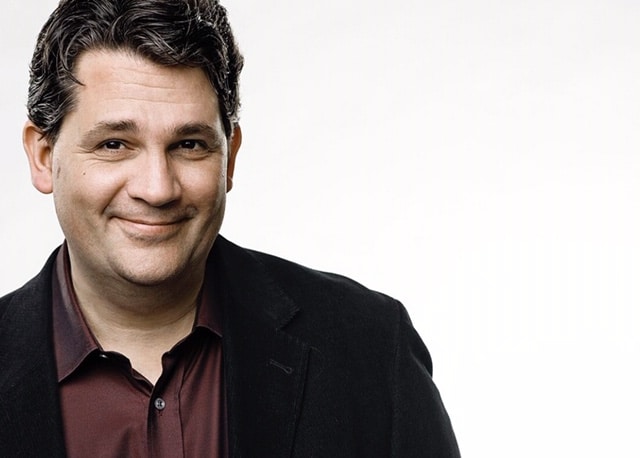I’ve been thinking a lot about aging and the music business, mainly because I’m aging and I’m in the music business. A few weeks ago, I had three age-related conversations on the same day. Meet Bob, Fred, and Jörg Achim, three of my musical heroes.
Conversation #1: Bob

“I’m so old Stephen Foster was my first duo partner.”
This is one of Bob’s lines—a joke he pulls out of his trap case whenever the topic of old age comes up. He used to tell this joke about other musicians. Now, approaching his eighty-fifth birthday, he tells it about himself.
“I’m so old my wife says I make the same sounds as the the coffee maker.”
“Did you write that joke?” I ask.
“No,” he says. “I am a thief of bad gags.”
Bob is my father and he’s still playing gigs. He’s the proud owner of two drum sets (a faded greenish-blue Premier and a silver sparkle Ludwig), two new hips (also silver sparkle), a collection of ancient Zildjian cymbals, and a vast repertoire of funny stories. Today he has received a call from a perky young woman (let’s call her Becky) who wants to book him—a year in advance—for a gig in February 2020. The gig is at a fancy-pants senior residence, the kind of venue where Bob’s band, a sophisticated mix of great music and comedy, tends to be a big hit.
“I told Becky the date will be fine,” Bob tells me. “And then she wants to know if I have video. Video? What the hell does she want video for?”
“Well,” I say, “that’s how people book bands these days.”
“Yeah, yeah, I know. But no way am I making a video at my age. I told Becky, ‘look, I’m almost eighty-five; I’m really good at what I do even though I’m not exactly sure what it is. I have no video. No video!’ I asked her where she got my name and she said that the Saint Barnabus senior center told her we were the absolutely the best band in the world for the gig. And I said, ‘you still need video after that recommendation?’ ”
“And?”
“Get this: She wanted to know if it was ‘safe’ to book me that far in advance.”
“Because you’re almost eighty-five.”
“Because I’m almost eighty-five.”
“Dad, please don’t tell me you hit her with the Stephen Foster joke.”
“Of course I did. But she didn’t laugh—probably never heard of Stephen Foster—so I kept going. ‘Becky,’ I said, ‘I’m so old I don’t even buy green bananas. I’m so old my social security number is thirteen. I’m so old John Philip Sousa was my roommate at music school. I need 10 strokes to play a 5 stroke roll. It takes me a half hour to play “The Minute Waltz.” I’m so old I was in the house band at Ford’s Theater. One of my students was the drummer boy in Pickett’s charge. I’m so old I’ve seen Halley’s comet three times.’ ”
“Stop!” I say.
“Funny stuff, right? But Becky didn’t laugh. Not once. Can you imagine? Event planners these days have no sense of humor. But I kept going—I said ‘at my age everything is either dried up or it leaks . . .’ You know me. I’ve got a million old age jokes.”
“So what happened?”
“I think I wore her down. She gave me the gig. Now all I have to do is stay alive. Hey, did you know my Slingerland high-hat stand lasted longer than my hips?”
Conversation #2: Fred (and Bud)

“Did I ever tell you about the whiskey and the beet juice? It was horrible,” says Fred (maybe not his real name), describing an evening—fifteen years ago—that started out as a good-natured whiskey tasting but turned into a woozy-doozy, tilt-a-whirl, fall-down-in-a-dead-faint night. Fred, a trombone player, and his buddy, Bud, also a trombone player, are now middle-aged. At the time of the whiskey incident, they were bandmates, sitting side by side in the same trombone section.
Fred and I huddle in a corner at a crowded post-concert reception for musicians and (way too many) friends. Because I often write goofy, true stories about musicians and gigs gone wrong, I hear many tales of youthful abandon, some of them involving alcohol. But the one about the whiskey and the beet juice grabs my attention. I’m intrigued, because I knew the story will not end well. I have always been a sucker for trombone humor and boyish folly.
Please note: Fred and Bud currently lead role-model lives as successful, working musicians. They are smart, funny, disciplined trombonists with mind-blowing talent. The following incident was a youthful misstep on a path to respectability. We’ve all been there. Sort of.
“It was Christmas time,” says Fred. “Bud and I left rehearsal and decided to do a little seasonal whiskey tasting. Just a little. Harmless. And fun. But one thing led to the next and before we knew it, we were really, really drunk. Tanked.”
“Yes,” I say. “Whiskey will do that.”
“I crashed at Bud’s house so I could walk to the gig the next morning. We were scheduled to record that day. I woke up feeling terrible, just terrible, like I was gonna die. The mother of all hangovers. And Bud convinced me to drink some freshly-pressed beet juice—he said it was the world’s best hangover remedy.”
“Beet juice? Was he crazy? So what happened? Did it help?”
“I guzzled half a liter of the damn beet juice. Bud and I arrived at the studio. I was feeling worse and worse. And the first tune the conductor called was ‘Have Yourself a Merry Little Christmas,’ which, sadly, featured me.”
“Solo?”
“Solo.”
“Yuletide cheer.”
“All that shit.”
“Like your job isn’t hard enough without a hangover.”
“I was dying. I knew I was gonna throw up, but I felt like I had to get through the damn piece, since, you know, we were recording.”
“Did you make it?”
“I got halfway through the solo and the beet juice started coming up, but I kept playing.”
“Oh, no.”
“Oh, yeah. Right in the middle of the bridge—right in the faithful friends gather near to us part—it started shooting out the sides of my mouth. Looked like I was hemorrhaging or something. I was using a Humes & Berg Velvetone mute—we call it a bucket mute. It’s nice and white and fluffy on the inside. But not that day—the beet juice got all over the mute. So much for white and fluffy.”
“Did anyone notice?”
“Bud noticed. He could hardly play ’cause he was laughing his ass off. But the other musicians were all dealing with their own issues. Anyway, when the tune was over, I raced to the men’s room and hurled the beet juice all over the floor. Looked like someone had been murdered in there.”
“Bathtub scene in Scarface?”
“Worse.”
“Why have I never heard this story?” Fred and I have been friends forever.
“I forced myself to forget about it. But we’ve had a trombone sub this week. New kid on the block. Young. And the kid looked at my bucket mute and seemed confused by the weird color. I realized that—all these years later—the white and fluffy part still has beet juice stains. So I told him the story.”
“Sort of like a warning?“ I ask.
“No. Warnings won’t help. He’s young. He’ll make his own stupid mistakes. He’ll stain his own bucket.”
“Part of growing up,” I say. “Thank God those days are behind us.”
“Yeah,” says Fred. “Something like that.”
Conversation #3: Jörg Achim

“That was a masterful concert,” I say to the conductor of tonight’s program, Jörg Achim Keller. “You share such a cool history with the musicians in this band—you really know how to write for them.”
After my harrowing talk with Fred, I have shuffled my way to the other side of the cocktail party, a large glass of sparkling water in my hand, thinking about my own long-ago drunken episodes. At least I never threw up into my instrument. Jeez. Forget whiskey. Fred has absolutely ruined freshly-pressed beet juice for me.
So. Jörg Achim and I talk briefly about his connection to several of the musicians in tonight’s ensemble. “You really know your musicians. Not just musically, but personally. That kind of history is like gold,” I say.
Jörg Achim asks me about my job as a cocktail lounge musician. “How often do you play at the hotel?”
“Three days a week, sometimes more. Last year I played close to two hundred gigs.”
“That’s a lot of solo piano.”
At this point another person slides into the conversation.
“Don’t you get lonely sitting at the piano by yourself?” she says, making a sad face. Ah, the well-meaning interloper.
“No! It’s the best job in the world.” I often find myself defending my profession as a background musician. “I play an excellent Steinway, I play the music I want to hear, the audience is constantly changing, I can work on new material or play my older compositions. I’ve been doing this for forty years. Why should I be lonely?”
“Forty years?” She looks appalled, as if I’ve told her I’ve spent forty years digging ditches or slinging hash.
“Yes. Forty years. More actually. I had my first gig when I was eighteen.” I almost say I’m so old I was the lounge pianist on the Mayflower, but I stop myself.
“That’s a long time. So, do you practice on the job?” she asks.
“No!” I say.
Jörg Achim jumps in: “Hey, there’s a lot of value to playing a background music job for that long. For one thing, the bottom comes up.”
“Say that again, please.” I think I understand what he’s saying, but I’m not sure.
“Yeah—when you’re playing so often in front of people, your worst moments get less noticeable. The bottom comes up, so to speak. In my opinion, that’s the best way to assess someone’s playing—not by their flashes of genius, but by their worst moments. Even a complete amateur can have sparks of brilliance. But how low is their bottom? Pretty low, usually. With your line of work—decades of playing for an audience in a no-pressure situation, the bottom keeps getting higher and higher.”
“Yeah,” I say. “I like that. Bottoms up. One of the benefits of aging.”
***
Later tonight, after I’m home and trying to stitch together the tatters of the day, I wonder if Jörg Achim’s bottoms up theory might not apply to life in general. We all make mistakes as adults, but as we mature, we learn to tap-dance around actions that have made us look, sound, or feel bad in the not-so-distant past. Like whiskey and beet juice, for instance.
I’m over sixty and lead a pretty respectable life, which is saying something considering my spotty history as a Chopin-playing stripper and teen-scream horror-queen film star (whose chopped-off head ends up in a toilet). My bottom has continued to rise, ever so slightly, over the course of six decades. I’ve stopped taking on tasks that confound me or cause grief. I’ve climbed out of professional and private trenches, scraped the dirt out from underneath my Piano Girl fingernails, and kept moving forward, eyes scanning the pavement (and the piano) for patches of treachery. Sometimes I miss the extreme risk-taking of my youth, but these days I love feeling safe, cradled in contentment’s soft underbelly, venturing out now and then to explore new, unthreatening territory. My bad, artistically and personally, has gotten pretty good. Bottoms up.
Maybe we don’t need 10,000 hours of practice to achieve mastery—maybe we need 10,000 hours to raise the bottom. Or maybe it’s the same thing. However you look at it, you can’t get there without growing older.
I wonder what Stephen Foster or John Philip Sousa would say on this topic—I’ll have to get Bob to ask them. They often get together for a jam session. Then they go fishing.
Whiskey for everyone. Just a little.
***
Robin Meloy Goldsby is a Steinway Artist. She is the author of Piano Girl; Waltz of the Asparagus People: The Further Adventures of Piano Girl; Rhythm: A Novel. New: Manhattan Road Trip, a collection of short stories about (what else?) musicians. Go here to buy Manhattan Road Trip.
New piano album: Home and Away, Goldsby’s latest solo piano album, directly from the artist. Robin’s music is available on all streaming platforms.
Personal note from RMG: I spent much of my summer holiday sorting through recordings and I’ve come up with a gorgeous playlist featuring my favorite “gentle music” players, including Ludovico Einaudi, Robin Spielberg, Christine Brown, Yiruma, Liz Story, et moi. I’m really proud of this playlist and hope it will bring you peace and joy. Right now would be a good time to listen. Click here to listen on Spotify or Apple Music.
Sign up here to receive Robin’s free newsletter. A new essay every month.
